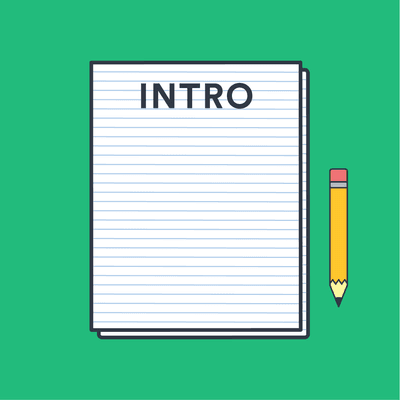

What to do with your finished thesis
Introduction.
So you have recently finished writing your thesis or dissertation – huge congratulations! What’s next? How can you make the most of your thesis? If you’ve done a good job researching your topic, now it’s time to take steps to ensure your thesis will not end up in a drawer and will instead see the world. How can you do that?
We want to help you make the most of the value you’ve created with your research and get recognition for your hard work, so we’ve put together some ideas about how you can get your research out there.
Publishing your research on our website
Firstly, if you have worked on a topic related to some of our recommended research directions, you might be interested in publishing your research on our Finished Theses page so others can read your research and learn from your experience of writing your thesis or dissertation. If you’re interested in this option, please message [email protected] .
This option does not exclude the others below, since you do not need to publish the full text of your thesis on our website, just your ‘Author’s note’ and a message that people can reach out to you if they want to read the full text. Therefore, we would recommend reaching out to us to have your thesis published on our website even if you consider some of the other options below. We would love to hear from you and share your work with others.
Publishing a post on the EA Forum
If you have worked on a topic related to some of our recommended research directions, we also recommend publishing part of your research or learnings on the Effective Altruism Forum . If you’re not already familiar with the EA Forum, it’s the central place for collaborative discussion in the EA community – a community of people interested in using evidence and reason to do as much good as possible.
Why publish on the EA Forum?
If your research is related to one of our recommended research directions, this means you wrote on a topic that many people in the EA community likely will be interested in, as it’s a topic on which further research is particularly likely to improve the world. So the EA Forum is a place where you’re likely to get engagement and feedback.
How could sharing your research help you and others?
Posting on the EA Forum could help you connect with other talented, motivated people who are also interested in the topic you did your research on. You could connect with future collaborators, organisations who might want to hire you, people whose work could benefit if they know about your research, and others who could give you feedback and ideas for future research.
Here is an encouraging talk by Aaron Gertler, who moderates the EA Forum, on Why you (yes, you) should post on the EA Forum (our tips below are taken from this talk). Posting on the EA forum would mean summarising your main learnings from your thesis, so this could be compatible with the other options mentioned in this post such as publishing your research on our website or in an academic journal (since for each of these channels you would probably use slightly different text/parts of your thesis).
How do I write a good forum post?
Start by considering what you most want to get out of posting on the Forum. You could summarise the parts of your work which encapsulate your best ideas or the main parts you are uncertain about in order to get feedback on them. For inspiration, we recommend reading through Aaron’s advice for posting on the EA Forum . We’ve summarised some of these tips on how to construct a good EA Forum post from your research below.
Beginning your post
Begin in a way that quickly gives readers context on what your post will be about.
- Write a brief summary of the key points of your post (a few sentences or bullet points).. This lets readers more easily figure out whether they want to invest time in reading the post, and lets you draw attention to a few key points (action items, counterintuitive ideas, etc.).
- Further points you could address in this top section are why you have written the post and how confident you are in your results.
- For examples of posts with nice ‘top of the post’- sections see this , this or this post.
The main part
- Be concise. Explain what is necessary to convey the points you would like to make and leave out anything that (even though very interesting) does not do that job. Provide a link to your full thesis or dissertation, or if it isn’t publicly accessible, consider providing your email address and let people know they can reach out to you if they would like access to the full version.
- It is okay to be more informal here – remember you’re explaining your ideas to a friendly community. Think about how you would explain your points to a friend without losing much precision and clarity.
- Consider that people with no background in your field will see your post.Think about whether you want to make the post accessible to people with no background in your field or if you want to only address people working in this field.
After you publish
Are there any questions you’d like readers to answer for you? If so, try putting each question in a separate comment at the end of the post. This makes it easier to coordinate discussion around certain questions.
Getting further advice
You could join the EA Editing and Review Facebook group to get feedback before publishing your post on the Forum.
Publishing in a peer-reviewed journal
You could also publish a paper based on your research in a peer-reviewed journal. This is one way to get more people to see your research, contributing to global scientific knowledge. It’s great career enhancement if you want a research career or to apply for a PhD. It’s also a way of getting feedback from reviewers and teaching you more about the academic publishing process. Sometimes supervisors will help you publish your work or publish with you. This is an opportunity you should take if it’s available. Publishing is a lot easier if someone with a more established reputation is the co-author of your paper.
The publishing process
Here is a brief summary of the process for publishing in a journal, along with a few other resources:
Finding a journal
The first strategic decision you will have to make is to select suitable journals. The resources below can help you evaluate journals using relevant criteria.
- JournalGuide and Jane are sites that suggest suitable journals based on your abstract, title or keywords.
- Here are some journal selection tips
- Here is an article on the impact factor , which is one factor you may want to use when selecting a journal to publish in.
Prepare your paper for submission
Every journal has specific guidelines with which you need to conform. Transforming your research into a paper will take some time. The resources below should help you with this writing process.
- Get published quick guide from Researcher Academy
- Thoughts on which audiences to address from Stuart Armstrong
- Your one-stop resource to writing a great research paper from editage insights
Submit and revise
In most cases you simply upload your final paper online. Your paper will be peer reviewed and either be rejected, accepted or most likely before acceptance you will be asked to revise your paper and include feedback from reviewers.
Here are a few additional resources to help you understand the whole publishing process further:
- How to Publish a Research Paper from wikiHow
- Online course: Free Research Academy by Elsevier
- How to get your research published and then noticed by Elsevier
Types of journals and publishing fees
Different types of journals use different business models. Open Access journals make money from charging authors (you) a large article processing fee (APC) of up to 4000$, with an average of approximately 2000$ per article. The benefit is that everyone can access your research without barriers.
On the other hand, subscription-based journals earn money from their readers, who pay for reading the journal regularly. This means that it is cheaper and sometimes free for authors to publish there. You will also find hybrid models.
You should also look at journals that do not use any common business model. Here are some no-fee open access journals and here is another collection of journals where you can submit without fees, however, these are often less established (unless subscription based) and there may be some risk involved. Beware of predatory journals and check whether the journal you’re interested in is legitimate before publishing with them. Think, Check, Submit supports you in avoiding journals which exploit inexperienced researchers and these lists can help you identify predatory journals.
Another class of journals are student journals . There are a handful of journals which publish student research . This is usually free (or you may need to pay a small processing cost) and it is easier to get published, however these journals are not as well known, so you may want to try established journals first.
How to cover the cost of publishing in open access journals
- Apply for help from your university: Universities usually have funds to which members of the university can apply to cover the cost of open access publishing. There’s a list of open access publication funds here . Universities also sometimes have “deals” with publishers, giving you the opportunity to publish for free in some open access journals. You could also try asking your supervisor whether your university offers either of these.
- Waivers: Some publishers waive fees (partly or fully) for low-income/lower-middle-income countries, and sometimes for other reasons, although this is not a widespread practice. Here and here are two examples of such policies.
Publishing on a pre-print platform
Pre-print platforms allow you to quickly publish a final draft of your research paper, before it has gone through the often lengthy process of peer-review and being published in an academic journal. While the papers on a pre-print platform have not gone through a peer-review process, there are advantages to pre-prints, both to you as an individual researcher and to the research community, so this is an option we encourage you to explore.
Publishing to a pre-print platform can be useful for reasons such as:
- Providing evidence of your research output for grant applications
- Informing others about your findings as soon as possible so they know what research has already been done
- Establishing scientific priority for discoveries
- Making it easier for other researchers to read and cite your research, and the platforms are open access
- Allowing you to receive feedback from a wide range of researchers, helping you to improve the manuscript
Before you publish in a pre-print journal, however, check the submission guidelines of the peer-reviewed journals you will ultimately try to publish in. Some journals will consider preprints to be prior publications and this may harm your ability to publish your paper later.
Here are some pre-print journals you may want to consider:
- bioRxiv for biology
- Arxiv for physics, maths and computer science
- The Open Science Framework for medicine and health sciences
- Preprints.org , the multidisciplinary preprint platform
Applying for prizes and awards
Prizes and awards give you another kind of validation and recognition of your work and are a good thing to put on your CV to increase your career prospects both within academia and outside. Some awards may come with the opportunity to present your paper at a conference, and can result in you becoming part of a network of other researchers.
Bear in mind that submitting a paper to a journal and submitting it for awards are sometimes mutually exclusive – check the submission requirements for any awards and journals to which you want to submit your research.
What can I apply for?
We have a list of awards here and also encourage you to apply for our Effective Thesis Exceptional Research Award . You can also sign up to our newsletter to hear about awards related to your research direction.
Your next steps and staying in touch
If you continue to pursue an academic career, we can offer you further support. Please do not hesitate to reach out , for example if you want guidance on choosing a PhD programme or a supervisor. Also don’t forget about our database of potential supervisors and PhD funding database . It might also be helpful to you to hear about relevant internships, scholarships, research job offers, conferences and other interesting opportunities via our ECRON newsletter . Finally, we would also very much recommend joining our online community of students who are interested in the research directions we recommend, so you can create new connections, learn from others’ experiences and share what you learned during your research journey.
If you’ve had a positive experience with a supervisor who you think would be a good fit to supervise students working on at least one of our research directions, please let us know via this form . If you completed a PhD and would be interested in supporting students working in your area of expertise yourself, you could also apply to join our expert network . Our experts provide valuable guidance to students – they might help students identify most important and impactful open research questions, offer feedback on a research proposal or student’s ideas, or provide ongoing mentorship throughout the thesis-writing process – the role is very flexible and you can choose the level of commitment.
Congratulations on your finished research and good luck with whatever next steps you take!
Read next: Testing your fit for a research career →
Subscribe to the topic discovery digest.
Subscribe to our Topic Discovery Digest to find thesis topics, tools and resources that can help you significantly improve the world.

Explore all our services
Learn about all the services we offer to help you have more impact with your research career.

Sharing your research findings beyond academia
Could your research findings inform the decisions of stakeholders outside of academia? In this post we cover who you could reach out to and how to make your research more accessible.

Research paths after undergrad or masters
Pursuing a PhD, working in a think tank and finding a research role in industry are just some of the options you could explore.

Resources and tools
Explore the research resources and tools that can help take your research to the next level.
Effective Thesis
Privacy policy
Stay in touch
Are you interested in applying for coaching or to our other services in future? Stay in touch and get our quarterly updates by signing up to our newsletter!
Reference management. Clean and simple.

How to proofread your thesis

1. Review your institution's guidelines
2. take a break before you read anything, 3. determine how to proofread your thesis, 4. use online tools, 5. read your thesis in a different order, 6. read your thesis out loud, 7. reach out to your peers, frequently asked questions about proofreading your thesis, related articles.
Now that you've finished your thesis , it's time to proofread it. You'll need to do this several times to ensure that you submit a solid thesis that's free of grammatical mistakes and typos. We've put together a few tips that can help you optimize the proofreading stage of your thesis.
Your institution will likely have specific guidelines for formatting your thesis. Be sure to double-check the guidelines for layout and format issues, including:
- paper size and margins
- running head
- page numbering
- line spacing
Take time to read through the guidelines again and keep them handy as you proofread your thesis.
The proofreading stage is also a good time to check your citations or references . Whether you're using Harvard, APA (American Psychological Association), MLA (Modern Language Association) or some other citation style, make sure that your citations are correct.
Give yourself some time off before you start proofreading your thesis. This allows you to return to your work with fresh eyes. Ideally, you should plan to take a break of several weeks before you begin proofreading; however, even a short break can help you refocus and catch more mistakes.
Some people like to proofread their thesis on screen, while others like to print it out and read it on paper. Whichever method you choose, be aware that you can't read it all at once. Rather, make a plan for how you want to approach proofreading and stick to it. You'll generally want to break up your process by chapter or section.
Consider breaking down your thesis proofreading process in one of these ways:
- by paragraph
Several online tools can help you with proofreading and some of them are even free. Use tools like Grammarly or Proofread Bot for proofreading or Readable.com or Slickwrite to critique your grammar and writing. A quick Google search will show you that there are dozens of tools out there that can help you with your thesis!
Week 1 : Read a chapter a day, watching out for major issues in argumentation, use of evidence, and organization.
Week 2 : Complete substantive revisions and check that all citations are correct. Use a reference manager like Paperpile to create accurate citations and bibliographies.
Week 3 : Re-read each chapter, checking for any additional surface errors. Double-check that your formatting aligns with your department’s thesis requirements.
Try reading your work backwards or in a random order. This approach often works better than reading your work from beginning to end.
By switching up your expectations, you will catch more errors. Plus, starting at the end allows you to keep your conclusions in mind as you read and helps you to verify that you've proven your thesis statement.
The best way to catch grammatical, stylistic, and organizational mistakes is to read your work aloud to yourself. Hearing your own words greatly increases your ability to find typos and errors.
Keep your eye out for the following common errors:
- subject-verb agreement
- faulty predication
- misplaced modifiers
- tense changes
- incorrect citations
If you have friends or peers who are also writing theses, or who have completed them, reach out for advice and help. For instance, blogger Pat Thomson suggests setting up a proofreading deal with a friend.
Also, you might find it useful to join or start a writing group. These groups build accountability and provide writers with support for all stages of the research and writing process.
The length of the proofreading process depends on the length of the thesis. Plus, you should plan to take a couple of weeks off before you start proofreading. It's also a good idea to break up longer projects by chapter or section.
Always double-check your institution's guidelines for the general layout, including:
If you know someone who is willing to proofread your thesis, then definitely ask! Friends and peers who are also working on theses, or who have recently finished, can provide you with useful insights about the grammar, style, and structure of your thesis.
As part of your proofreading plan, you should create a checklist of items that you want to watch out for while proofreading your thesis. Your checklist might include:
- Spelling and typos
- Verb tenses and subject-verb agreement
- Sentence structure
- Layout and formatting
- Citations and/or references
- Consistency of style
- Organization
- Overall flow
You should plan to proofread your thesis as many times as it takes to ensure that you submit a polished and professional work. Typically, however, most thesis writers proofread their work around three to four times.

- Corporate Services

- Blog editing
- Your Happy First Draft
- 8 1/2 Steps to Writing Faster, Better
Online courses
- How to Hire an Editor
- Extreme Writing Makeover
- Banish Your Fear of Writing
Group support
- Get it Done
How to finish my thesis or dissertation
Are you having difficulty finishing — or perhaps even starting — your dissertation or thesis? Many students spend far too many hours “aspiring” to research and write, but, in reality, getting very little done. Don’t let guilt become your prime motivator. Instead, learn how to finish your paper with confidence and control. See more, below.
Start here...
Continue here....
How to write for research journals (video)
The figurative language of Damian Barr…
How to respond instead of react to stressful situations
You don’t have to be a Navy SEAL to use writing discipline
How do you view ‘defacing’ books?
How to write around children (video)
The figurative language of Sophie Mackintosh…
How to get and stay organized
See all here…

Starting (or finishing) your book or thesis is not rocket science
The need to write a long-form project, such as a book, thesis or dissertation freaks out many people. The project is so big! Their minds spin with questions such as:
- Where do I get started?
- How much research do I need to do?
- How much time should I spend writing every day?
- How can I stop procrastinating
- How am I going to maintain the quality?
- Academics: Will my supervisor accept this work?
- Book authors : How can I ever find an agent or publisher? Or, should I self-publish?
Stop! Take a deep breath and make a plan to approach the project in a calm and sensible way. Get it Done is a five-year time-tested program that can help give you a sense of order. Starting in 2013 Daphne has worked with a small group of writers helping them complete their books, theses and dissertations.
The heart of the program is its accountability system: you need to report your achievements to the group, five days a week for three months. People are not automatically accepted into the group; it’s necessary to apply.
You want to...
Find more time to write, be a more productive writer, improve your writing, beat writer's block, become a better editor, write or publish your book, finish your thesis or dissertation, be more creative.
- Skip to primary navigation
- Skip to main content
- Skip to footer
Say goodbye to unnecessary stress and get your PhD 12 months sooner with our free guide

Finish Your Thesis
Get a PhD and Finish Your Thesis 12 Months Sooner
I am Dr. Dora Farkas, founder of the Finish Your Thesis Academy.
When i tell people that i got my phd from mit, there is usually a brief silence, followed by something like “wow, that’s impressive”, but the reality was not all that glamorous., my experience at mit.

Initially, I was very disappointed in myself that I wasn’t tough enough to handle the challenges of academia on my own. But when I shyly admitted to other students that I had been spending all my working hours at this specialized facility, they shared their “secrets” as well. Graduate school seemed to take a toll on the mental and physical health of most of my peers .
I was not okay with this.
I already knew that when I was physically and mentally depleted from stress or lack of sleep, I wasn’t very productive.
So, why did we get trapped in a vicious cycle of stress that set us back in our work and, worse, ruined our health and relationships?
Life after graduate school didn’t seem appealing either. Most of my friends were doing a postdoctoral fellowship, supporting a family on a tiny salary for years, and not feeling prepared for a career either in academia or industry.
Between the pressure of having to finish a thesis and the bleak outlook for the future, it wasn’t surprising that my peers and I felt like we were just “existing”, merely going through the motions to get us through the day.
The passion that had been the driving force to get us into graduate school so we could make a difference for other people one day, seemed like a pipe dream.

The Turning Point
After a few years in graduate school most of just wanted to be done, and move on. But, move onto what?
Fortunately, there were exceptions, and these students gave me hope that there was a better way.
Every once in a while I met a student who lived a normal life. They went home at a reasonable hour to eat dinner. They took time off on weekends to be with their spouse, and children if they had them. They traveled during vacation, perhaps not very far depending on their budget, but they felt good about taking time off for themselves.
Initially, I eyed these students with suspicion. If the rest of us took 6-7 years to finish our thesis while working 70 hours a week, how long would it take these students to finish?
I remember how stunned I felt when I saw the thesis defense announcement for one of these “normal” students after just 4 years. First, I thought she was an anomaly, perhaps she just got lucky with her data.
But I started noting that many of the students who finished their thesis relatively quickly, lived well-balanced “normal” lives. Their futures seemed brighter as well. They either got a postdoctoral fellowship at a prestigious university or a job offer even before they defended their thesis.
Having taken classes with some of these students, I knew that they were not geniuses. They didn’t ace all the exams. But, they found a way to take care of themselves and relationships, despite the unexpected twists in their thesis work and their life circumstances.
I was determined to find out the keys to a successful experience and balanced life in graduate school and adopt them in my own life.
In my last two years I went to as many thesis defense presentations as I could, and I talked with the newly-minted PhDs about their personal journeys to the finish line.
One of the most valuable lessons that a friend of mine shared with me after her defense, was the importance of having confidence in my work, even if it wasn’t perfect. (A great lesson for all of us who have ever been held back by our own perfectionism)

This boost in my confidence led to one of the turning points in graduate school. At my next committee meeting, my chair made an unexpected decision. After seeing promising results from my last study, he declared that if I could write up what I had, I could defend my thesis that semester.
My excitement quickly turned to panic when I realized that the only date that all three of my committee members would be available was just 20 days away.
That was all the time that I had to write up a 150-200 page thesis, and prepare for a 1 hour thesis defense.
That night I stayed at the computer facility until midnight, pouring over all the data that I would need to write up into a coherent thesis. It seemed like an impossible task, given that I was battling chronic pain in my arms as well as anxiety. As I sat there alone, I thought of my friends who felt hopeless about ever finishing graduate school, and I heard myself say out loud:
“If I can do this in 20 days, I will teach other students how to finish their thesis.”
It was one of the most powerful promises I ever made to myself.
The next 20 days were a blur. I typed as much as I could, and I also mastered the art of scientific writing with a not-so sophisticated voice activated dictation tool.
Most importantly, I learned the power of focus, and how much you can get done in a short amount of time when you know exactly what you need to do.
I completed my thesis by the deadline, and a few months later I submitted 3 first-author papers for publication.
After graduate school I followed a traditional scientific career path, first as a postdoctoral fellow at Tufts University and then as a research scientist in the pharmaceutical industry.
Although I wasn’t sure about the best way to teach other graduate students to finish their thesis, I interviewed successful PhDs about their experiences and I started a website where I published articles regularly about coping with challenges of graduate school.
As a mom of 2 young girls, my writing focused on how to excel professionally while staying healthy and being present with your family.
By the end of 2013, my website gained significant traction and I had been invited to a few universities to give workshops.
At the beginning of 2014 I decided to leave the pharmaceutical industry and coach graduate students full time.
This is how the Finish Your Thesis Academy was born.
Over the past 5 years I have had the honor of supporting thousands of graduate students worldwide through live workshops, online courses and private coaching.

The hardships, obstacles, frustrations are part of your training to become a PhD, an influencer and leader in your field.
Mistakes and “failures” are not signs that you are not smart enough for graduate school.
On the contrary, if you are still in graduate school after having gone through experiences when others would have given up, it’s a sign that you definitely have what it takes to finish graduate school.
Like many other students, one of my driving forces was that I wanted to make my family proud of me.
I am originally from Hungary, and I knew how many sacrifices my parents made so I had the opportunity to attend a university in the US.
I became the first PhD in my family, because I was the first one who had the opportunity to go to graduate school.
Now that I have my PhD I realize how much it means to my daughters to have someone to look up to, because I finished something that I started even when it seemed impossible.
When I worked in the pharmaceutical industry, and I was the only PhD besides my boss in my group, my skills as a critical thinker became invaluable when we were faced with problems that no one had ever solved before.
Having the experience of completing your PhD empowers you to be a role model for others, and to give back to your family and community, at a new level.
I founded the Finish Your Thesis Academy to give you the opportunity to become part of a community of like-minded students, who are also driven and passionate about impacting lives of other people.
I am honored to have the opportunity to support you and provide you the resources to excel academically, finish your thesis, and make your difference in the world.
Are you feeling alone and looking for a community & accountability to finish writing your Dissertation?
Having accountability through a community of other PhD students is one of the best ways to become and stay motivated until you finish writing your Dissertation
Check out our Dissertation Writing Workshop & get help to finish your PhD.

Engage with Finish Your Thesis on social media
Get started with your free copy of "Finish Your PhD Faster"
Download my strategic guide to fire up your motivation, get laser focused and get your PhD 12 months sooner.

COMMENTS
Step 5: Wrap up your thesis or dissertation. The end is near! Once you've finished writing your conclusion, it's time to wrap up your thesis or dissertation with a few final steps: It's a good idea to write your abstract next, while the research is still fresh in your mind. Next, make sure your reference list is complete and correctly ...
In my experience, people who don't finish their dissertations have one of two problems with the people they surround themselves with: 1) they don't have anyone who is actively writing a dissertation in their daily life (i.e., they remove themselves entirely from contact with other dissertation writers) or 2) they surround themselves with ...
You are almost finished, just one step and that masters degree is yours. First, I assume you are from USA, so different system than in mainland Europe where i studied, so take that in mind. If you find your thesis dull and mentor unhelpful, easiest way is to switch thesis, but better yet, switch both thesis and mentor.
Embark on the revealing journey of overcoming thesis delays as I share the reasons behind finishing my thesis 6 months late. Unlock 5 actionable tips to ensure you stay on track and complete your ...
A good conclusion will review the key points of the thesis and explain to the reader why the information is relevant, applicable, or related to the world as a whole. Make sure to dedicate enough of your writing time to the conclusion and do not put it off until the very last minute. Organize your papers in one place. Try Paperpile.
Revised on April 16, 2024. A thesis is a type of research paper based on your original research. It is usually submitted as the final step of a master's program or a capstone to a bachelor's degree. Writing a thesis can be a daunting experience. Other than a dissertation, it is one of the longest pieces of writing students typically complete.
For examples of posts with nice 'top of the post'- sections see this, this or this post. The main part. Be concise. Explain what is necessary to convey the points you would like to make and leave out anything that (even though very interesting) does not do that job. Provide a link to your full thesis or dissertation, or if it isn't ...
Here are two ways that I managed to do it. Write. Even when you have zero motivation. This applies especially to those who are in the situation I was in. Since the aim is to fill your content ...
3-week thesis proofreading plan. Week 1: Read a chapter a day, watching out for major issues in argumentation, use of evidence, and organization. Week 2: Complete substantive revisions and check that all citations are correct. Use a reference manager like Paperpile to create accurate citations and bibliographies.
Strategy #7: Break down thesis into manageable bits. One of the most overwhelming aspects of writing a thesis is that it is so long. Keep in mind that no one has written a thesis in one day (to my knowledge at least). Some students find it overwhelming to write for even a couple of hours at a time.
The goal was to prevent the pain before it started. I slowly increased the number of hours I worked by reducing the length of my breaks (5-15 minutes instead of 1-2 hours), but I continued to only type for only 15 minutes at a time for the remainder of the school year. It took a HUGE leap of faith to believe that I could finish my thesis (which ...
Get it Done is a five-year time-tested program that can help give you a sense of order. Starting in 2013 Daphne has worked with a small group of writers helping them complete their books, theses and dissertations. The heart of the program is its accountability system: you need to report your achievements to the group, five days a week for three ...
This is how the Finish Your Thesis Academy was born. Over the past 5 years I have had the honor of supporting thousands of graduate students worldwide through live workshops, online courses and private coaching. By working with me, student realize that graduate school is designed to prepare you for your career, and it is meant to challenge you.
I procrastinated 3 months away and did 90% of the research and writing in about one month for my 40 page minimum master's thesis. You can see a flurry of activity on my github in the 1-1.5 weeks of writing. I'm now doing a PhD straight out of my master's. You'll be okay.
IceStationZebra93. I finished writing my thesis!! Oh boy does it suck!!! I don't even care anymore!! Vent. So, I have finally finished writing my dissertation. Every section has been filled out and everything is in its place. I hate every single sentence in it. I have literally spent the last few months cringing at it whenever I opened Overleaf ...
My thesis isn't finished and graduation is a week away. I was supposed to present my finished thesis for undergrad yesterday. I've been working all semester and writing the actual paper for weeks now. It's going horrifically slow though. It doesn't help that I lost a month at the beginning on medical leave.
Hi guys, yea, I was able to correct my thesis and send it to my chair via an all-nighter. I'm sure they were annoyed, but they reviewed it and suggested some wording changes here and there.I can't imagine that my thesis is anything remotely like a dissertation, but it's still been challenging due to ADHD (I overlook details all of the time ...
1. With an active degree, you should just put the expected graduate date. If you completely dropped out of the degree program, you can put you completed your masters courses, but not the thesis. This is actually fairly common for people who dropped out of their PhD programs. Share. Improve this answer.
I suggest setting targets that allow you to finish writing in eight days, not 10. This gives you some padding in case life gets in the way. To be clear, there are 192 hours in eight days. Allowing for a 12-hour work day, then you need to write 15,000 words in 96 hours or about 156 words an hour. Set a target of 400 words an hour.
A couple of weeks ago, I finished writing my thesis (10,000 words-ish) after a horrendous year of constantly struggling to convince my brain to actually do something. I just got my grades back, and I passed - I actually did pretty well, all things considered!
The finish line is already reached - you don't need to drag yourself across it, you just need to get yourself up the floor and realise you've done 99.99999999999% of the work! Have FUN, soon-to-be Dr! mood. I spent the last 3 weeks of my diss in one of the most painful fits of rage-quitting possible.